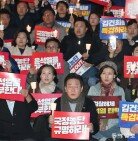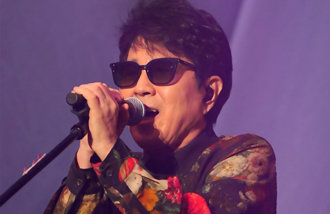Justice Ministry’s Truth and Reconciliation Committee draws to a close
Justice Ministry’s Truth and Reconciliation Committee draws to a close
Posted May. 30, 2019 07:29,
Updated May. 30, 2019 07:29
The Truth and Reconciliation Committee under the South Korean Ministry of Justice will be closed at the end of this month. It was initially scheduled to close in August last year, but the period has been extended for more than one and a half years over four occasions. There were outcomes, such as the advising extraordinary appeal to the Busan Brother Welfare crime, where orphans and the disabled were prisoned and subject to forced labor as well as re-opening investigations on former vice minister Kim Hak-ui on a suspected sex crime. However, there were several cases where it showed political bias without being able to set firm standards to call investigators to account.
Five out of nine committee members were former members of the “Lawyers for a Democratic Society,” which raised controversy over its neutrality from the beginning. A majority of the cases brought to the committee involved political cases that occurred during the former right-winged administrations. While the Yakchon murder case was involved, it did not include the Itaewon murder case, the true story of the movie with the same title. The Chuncheon murder case, which President Moon Jae-in had worked on as a lawyer, was included, raising criticism on the lack of consistency or criteria.
Even though the committee has demanded apologies from the Public Prosecutor General on neglecting the Yoo Woo-sung spy manipulation case, it did not hold the lead prosecutor of the investigation, who is currently working in the legal field, accountable. It did not even mention the accountability of the investigating prosecutor (who is working as an attorney for a major law firm) for the Samrye Nara Supermarket mugger case, who released the real culprit in spite of his confessions. The committee is said to have turned a blind eye to the Kim Hak-ui case, trying to avoid responsibility by blaming the previous administration and belatedly advised investigations on the prosecutors assigned to the case. It is questionable whether we can prevent similar cases going forward when the committee mostly blames the former administrations for wrong-doings while just ruling that the investigations were not properly carried out.
Separately, the committee said that the prosecution of the embezzlement case of former KBS CEO Cheong Yeon-ju was illegitimate and unjust. The case has been finally ruled as non-guilty after being declared guilty in the first trial. If the prosecution is seen illegitimate and unjust simply because it is ruled non-guilty, the incumbent Public Prosecutor General, who prosecuted former Prime Minister Lee Wan-gu, should step down as well. In the meanwhile, a prosecutor, who refused to prosecute and eventually resigned, insists that the investigations carried out at the request of the Agriculture, Fisheries and Food Ministry was just.
The committee criticized Wednesday previous prosecutors’ acts to hide suspected crime, but it should be noted that prosecutors today publicize facts of suspected crime. While unrooting irregularities are conducted to prevent mistakes from the past, it is questionable whether the committee has aptly performed its role. Perhaps the closure of the committee can be a constructive step for us to put the past behind us and face the future.







